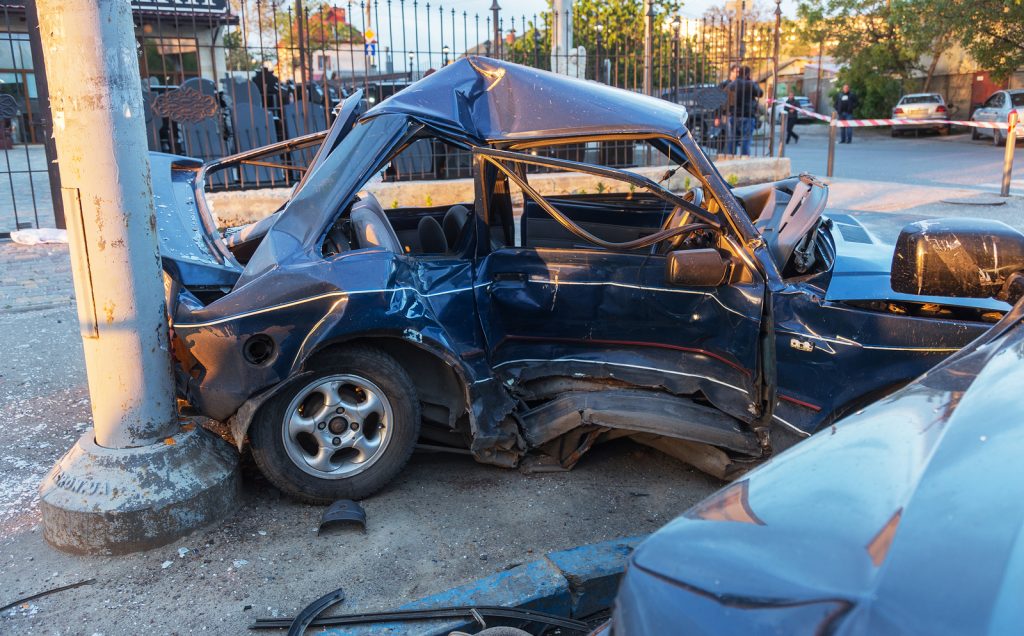Losing a loved one in an unexpected accident is a heart-wrenching experience. If the accident occurred due to avoidable acts of someone else, it could be an extremely traumatic period for the surviving family members.
If you just lost someone due to another person’s fault, it is crucial to get in touch with a personal injury lawyer in Halifax, NS, as soon as possible. While the financial compensation you may be pursuing cannot deal with the loss you are experiencing, it can go a long way in sorting out things like funeral expenses and loss of income the deceased may have been providing to the family.
Who can file for a wrongful death claim is governed by the Fatal Injuries Act of Nova Scotia. It also provides the guidelines for other things surrounding compensation.
Who Can Sue for Wrongful Death in Nova Scotia?
Family members can sue for a wrongful death claim in Nova Scotia if the executor of the deceased person’s estate does not do so after six months.
However, the number is limited to only a few people. They include:
- Spouse
- Common-law partner
- Parent or child of the deceased
For a child, it includes stepchildren and grandchildren. As for a parent, it covers father, mother, grandparents, stepmother, and stepfather. Unfortunately, brothers and sisters are not allowed to file a claim in Nova Scotia.
If you plan on bringing the action, make sure that you have the legal authority to avoid wasting your time and money.
What Type of Damages Can One Sue For?
Loss of Care, Guidance, and Companionship
Nova Scotia limits what the family of wrongful death victims can collect in compensation. You can pursue general damages in your claim, which include loss of care, guidance and companionship.
For anyone claiming compensation, the court will consider the closeness of that family member with the deceased. If it is the spouse, the court will consider the length of their relationship, how close they were, any shared activities, whether they had any children, any shared expenses, intermingling of assets, and general commitment and compassion for each other.
Younger children are often awarded more in damages for their own loss of care, guidance and companionship because they will be staying without their parent for a long time. The courts consider the loss of guidance and loss of companionship as a meaningful compensation for younger claimants.
Dependency Loss
The other damages available for wrongful death in Nova Scotia relate to economic losses or dependency loss. These are considered the financial losses the surviving family will experience following the death of their love done.
Here are a few factors the courts will use when calculating dependency loss:
- Wages of the deceased before their death
- Surviving family’s income
- Ages of the surviving family and age of the deceased
- Insurance benefits
- Benefits from the deceased person’s estate
What Are the Common Types of Wrongful Death Cases?
Most people believe that a wrongful death can never happen to either them or anyone of their family members. But the truth is that these are unpredictable events which are quite common in Halifax and throughout Nova Scotia. The responsible party is likely to face a civil action rather than a criminal action.
The common types of fatal accidents we’ve seen include:
Car accidents. The leading cause of wrongful deaths in Nova Scotia is car accidents. While these accidents can happen on city and town roads, they are also prominent on highways.
Truck accidents. The sheer size of trucks and semi-trucks makes them more likely to cause a fatality in an accident. These accidents are often caused due to driver fatigue, mechanical issues with the truck, or driving with an oversized load.
Premises liability. Slips, falls, trips, dog bites, and pool accidents are all examples of premises liability.
Workplace accidents. Nova Scotia has numerous construction and manufacturing jobs. This means that there are several dangerous work environments in the province.
Medical malpractice. Healthcare providers have a duty of care when handling patients. But we have heard about avoidable cases of misdiagnosis, medical negligence or errors that caused fatalities.
Pedestrian accidents. Without protection, a pedestrian accident in Halifax is more likely to end in a fatality. Most of these cases are caused by driver negligence or municipalities if the accident happened due to a road defect.
Defective products. Defective prescription drugs, automobiles, unsafe toys and toxic foods can all result in wrongful death. The manufacturer is likely to be liable in such cases
What Do I Have to Prove in a Wrongful Death Claim?
You will have to show wrongful death in Nova Scotia by proving that:
- The liable party’s actions or inactions had a contribution to your loved one’s loss of life
- The loss of life was due to the negligence, or recklessness, or intent of the liable party
- This death has caused you and the family to sustain damages
Once you discuss the facts with a Nova Scotia wrongful death lawyer, he or she will determine whether or not you have a valid claim. If there are enough grounds to file for a wrongful death lawsuit, your lawyer will go ahead and start collecting evidence.
Is There a Deadline for Filing a Wrongful Death Lawsuit?
In Nova Scotia, you have to file your lawsuit within a year from the date of the death. The time limitations are comparably shorter than in any regular motor vehicle accident.
Compassionate Halifax Lawyer to Guide You
If you lost a loved one to an unexpected accident in Nova Scotia, it is vital to understand your rights and if you are entitled to receive damages. Because of how delicate and emotionally charged these cases are, it’s best to talk to a personal injury expert in Nova Scotia.
Your Halifax wrongful death lawyer will help you understand the rules associated with fatal injury actions and help your family pursue the maximum deserved compensation for your family.














